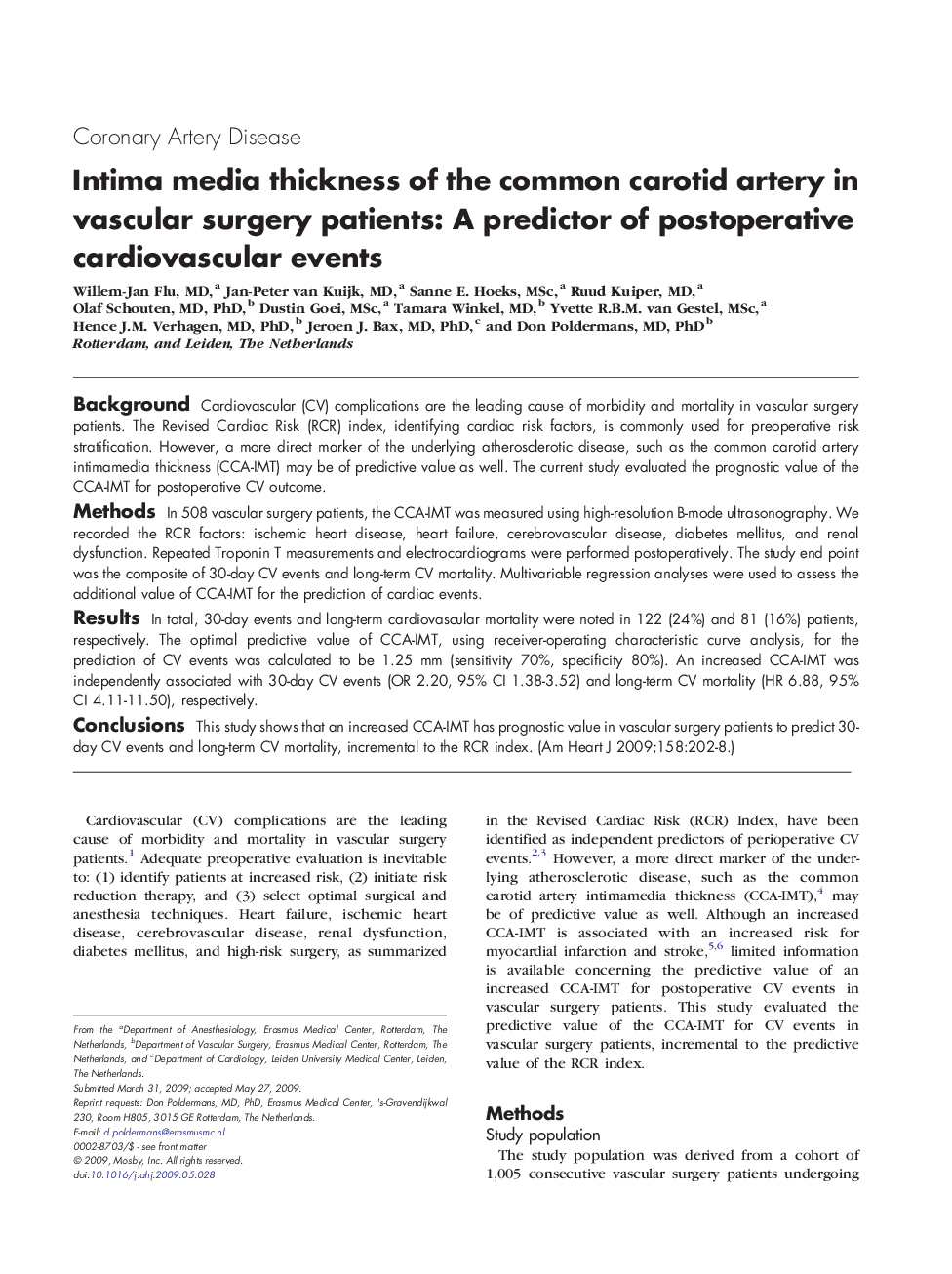| Article ID | Journal | Published Year | Pages | File Type |
|---|---|---|---|---|
| 2849689 | American Heart Journal | 2009 | 7 Pages |
BackgroundCardiovascular (CV) complications are the leading cause of morbidity and mortality in vascular surgery patients. The Revised Cardiac Risk (RCR) index, identifying cardiac risk factors, is commonly used for preoperative risk stratification. However, a more direct marker of the underlying atherosclerotic disease, such as the common carotid artery intimamedia thickness (CCA-IMT) may be of predictive value as well. The current study evaluated the prognostic value of the CCA-IMT for postoperative CV outcome.MethodsIn 508 vascular surgery patients, the CCA-IMT was measured using high-resolution B-mode ultrasonography. We recorded the RCR factors: ischemic heart disease, heart failure, cerebrovascular disease, diabetes mellitus, and renal dysfunction. Repeated Troponin T measurements and electrocardiograms were performed postoperatively. The study end point was the composite of 30-day CV events and long-term CV mortality. Multivariable regression analyses were used to assess the additional value of CCA-IMT for the prediction of cardiac events.ResultsIn total, 30-day events and long-term cardiovascular mortality were noted in 122 (24%) and 81 (16%) patients, respectively. The optimal predictive value of CCA-IMT, using receiver-operating characteristic curve analysis, for the prediction of CV events was calculated to be 1.25 mm (sensitivity 70%, specificity 80%). An increased CCA-IMT was independently associated with 30-day CV events (OR 2.20, 95% CI 1.38-3.52) and long-term CV mortality (HR 6.88, 95% CI 4.11-11.50), respectively.ConclusionsThis study shows that an increased CCA-IMT has prognostic value in vascular surgery patients to predict 30-day CV events and long-term CV mortality, incremental to the RCR index.
